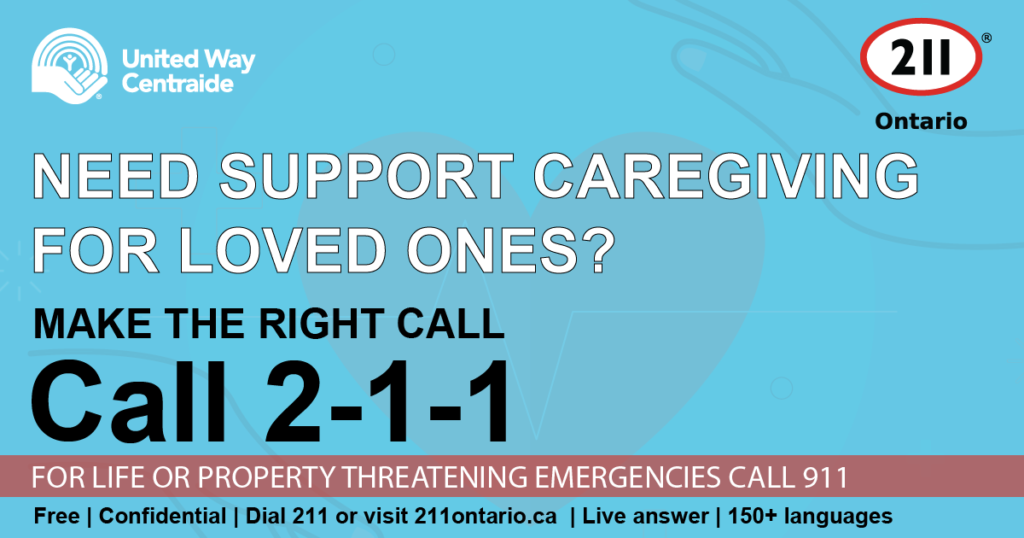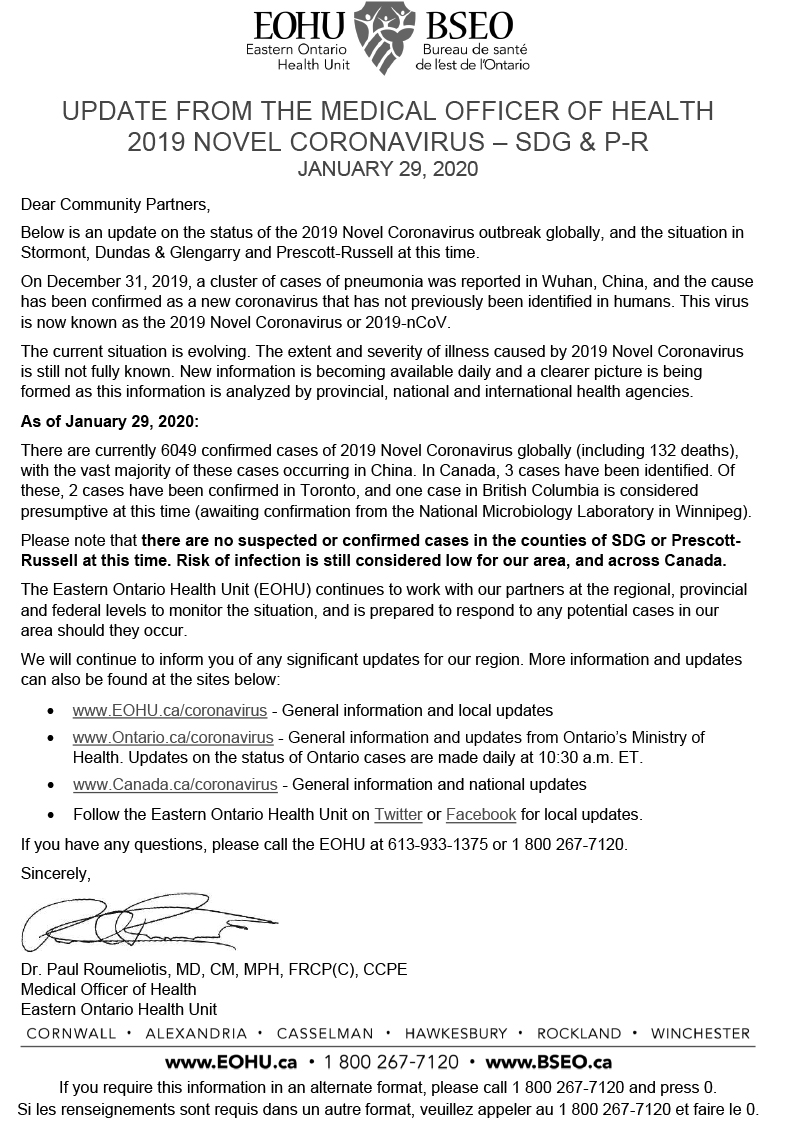Latest News and Notices
Family Day
- Details
Please take note that the Town Hall is closed on Monday, February 17
It’s Family Day, come and have fun at the Sports Complex!![]()
What you should know about the Coronavirus
- Details
What can I do to protect myself?
Wash your hands frequently
Wash your hands frequently with soap and water or use an alcohol-based hand rub if your hands are not visibly dirty.
Why? Washing your hands with soap and water or using alcohol-based hand rub eliminates the virus if it is on your hands.
Practice respiratory hygiene
When coughing and sneezing, cover mouth and nose with flexed elbow or tissue – discard tissue immediately into a closed bin and clean your hands with alcohol-based hand rub or soap and water.
Why? Covering your mouth and nose when coughing and sneezing prevent the spread of germs and viruses. If you sneeze or cough into your hands, you may contaminate objects or people that you touch.
Maintain social distancing
Maintain at least 1 metre (3 feet) distance between yourself and other people, particularly those who are coughing, sneezing and have a fever.
Why? When someone who is infected with a respiratory disease, like 2019-nCoV, coughs or sneezes they project small droplets containing the virus. If you are too close, you can breathe in the virus.
Avoid touching eyes, nose and mouth
Why? Hands touch many surfaces which can be contaminated with the virus. If you touch your eyes, nose or mouth with your contaminated hands, you can transfer the virus from the surface to yourself.
If you have fever, cough and difficulty breathing, seek medical care early
Tell your health care provider if you have traveled in an area in China where 2019-nCoV has been reported, or if you have been in close contact with someone with who has traveled from China and has respiratory symptoms.
Why? Whenever you have fever, cough and difficulty breathing it’s important to seek medical attention promptly as this may be due to a respiratory infection or other serious condition. Respiratory symptoms with fever can have a range of causes, and depending on your personal travel history and circumstances, 2019-nCoV could be one of them.
If you have mild respiratory symptoms and no travel history to or within China
If you have mild respiratory symptoms and no travel history to or within China, carefully practice basic respiratory and hand hygiene and stay home until you are recovered, if possible.
As a general precaution, practice general hygiene measures when visiting live animal markets, wet markets or animal product markets
Ensure regular hand washing with soap and potable water after touching animals and animal products; avoid touching eyes, nose or mouth with hands; and avoid contact with sick animals or spoiled animal products. Strictly avoid any contact with other animals in the market (e.g., stray cats and dogs, rodents, birds, bats). Avoid contact with potentially contaminated animal waste or fluids on the soil or structures of shops and market facilities.
Avoid consumption of raw or undercooked animal products
Handle raw meat, milk or animal organs with care, to avoid cross-contamination with uncooked foods, as per good food safety practices.
Q&A on coronaviruses
https://www.who.int/news-room/q-a-detail/q-a-coronaviruses
You will also find the latest update from the medical officer of health on Covid-19 (novel coronavirus) – sdg & p-r (February 13, 2020)
![]() 11208_ICD-20e_Coronavirus_-_Update_for_Community_Partners_2020-02-13.pdf
11208_ICD-20e_Coronavirus_-_Update_for_Community_Partners_2020-02-13.pdf
![]()
211 Day
- Details
One of the most common reasons Canadians call 211 is for help accessing non-emergency medical services. That includes things like accessing medical equipment, caregiver respite or finding a family doctor. Did you know that more than 8 million Canadians provide informal care to a family member or friend? 211 can help provide information on support services for caregivers. #MaketheRightCall #211Day

Snow removal
- Details
Please note that the snow clearing activities are currently ongoing and will continue all weekend. Also, the snow banks removal activities will begin during the night of Sunday to Monday (February 10) and will continue all day Monday. Thank you for your understanding.
UPDATE FROM THE MEDICAL OFFICER OF HEALTH 2019 NOVEL CORONAVIRUS
- Details
As of January 29, 2020: There are currently 6049 confirmed cases of 2019 Novel Coronavirus globally (including 132 deaths), with the vast majority of these cases occurring in China. In Canada, 3 cases have been identified. Of these, 2 cases have been confirmed in Toronto, and one case in British Columbia is considered presumptive at this time (awaiting confirmation from the National Microbiology Laboratory in Winnipeg).
Please note that there are no suspected or confirmed cases in the counties of SDG or Prescott- Russell at this time. Risk of infection is still considered low for our area, and across Canada.

